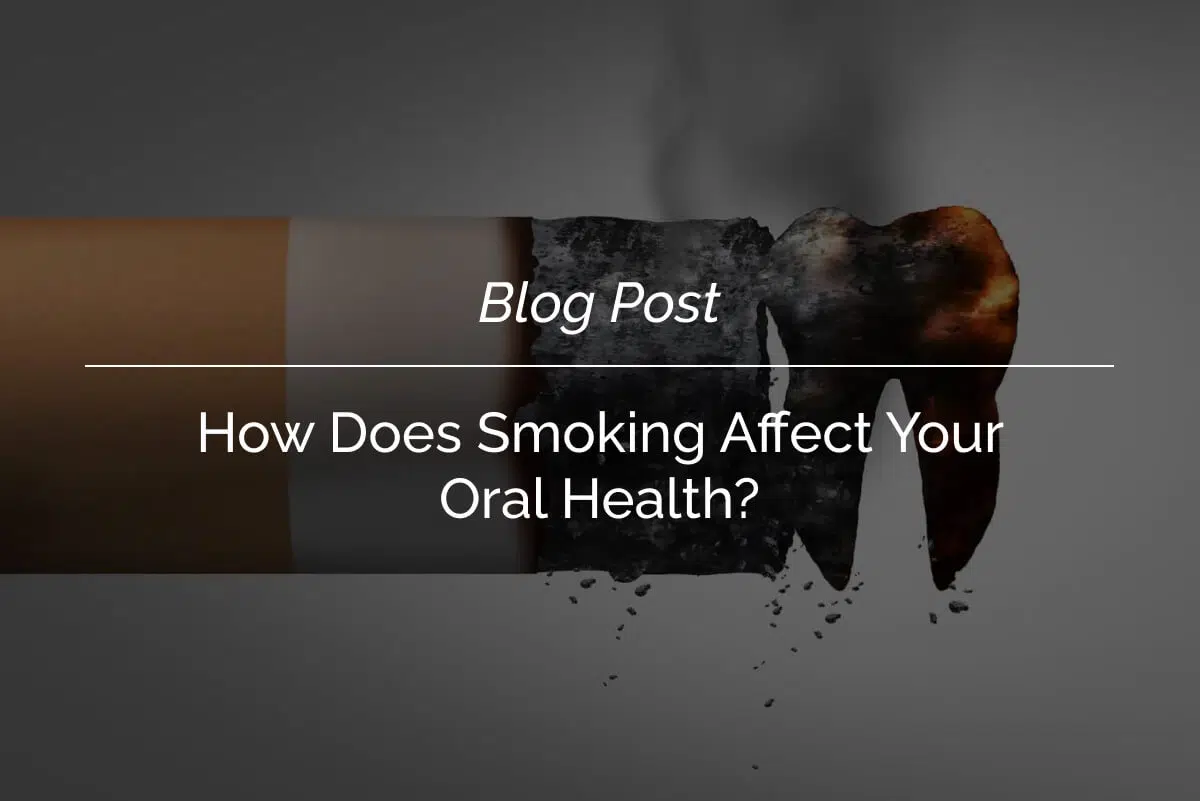Everyone knows about the negative impacts of smoking on your heart and lungs, but it can also be seriously detrimental to oral health. It’s estimated that over 11% of Australian adults smoke (2019 data), and this group of the population are at greater risk of tooth discolouration, gum disease and recession, tooth loss, mouth sores and even mouth cancer.
The truth is that the outcomes of smoking cigarettes go beyond just bad breath, so let’s explore some of the ways smoking can affect your oral health.
Tooth staining
Some of the less concerning effects of smoking include tooth staining, bad breath (halitosis), and a loss of smell and taste. This staining is due to the nicotine and tar present in tobacco, which can make teeth look yellow over time – and even brown in heavy smokers. Although nicotine itself is colourless, it turns yellow when it reacts with oxygen, and is absorbed into the pores in your teeth, making them appear darker.
The only way to correct the effects of tobacco discolouration is with teeth whitening from your dentist.
Gum disease
Smoking weakens the immune system and reduces your body’s ability to fight off infections – including gum disease. Additionally, smoking produces more bacterial plaque that can lead to gum disease, and because smoking reduces oxygen in the bloodstream, gums don’t heal as easily.
It’s estimated that people who smoke are twice at risk of developing gum disease compared to non-smokers, and gum disease is the most common cause of tooth loss in adults.
Tooth loss
Smoking supports the build-up of bacteria, plaque and tartar which can lead to cavities and tooth loss. Tobacco can irritate the gum tissue which causes gums to loosen around the teeth, providing more room for bacteria to settle in, leading to decay.
Mouth sores & ulcers
Mouth sores and ulcers are more prevalent in smokers and interestingly, studies have found that people that quit smoking experience an increase in mouth ulcers in the two weeks after stopping smoking. These issues got milder with time and all ulcers mostly disappeared within four weeks after quitting.
Mouth cancer
In extreme circumstances, smokers can develop oral cancer. This is because of the exposure to harmful chemicals found in tobacco, which mutates the healthy cells in the mouth and throat. Oral cancer predominantly occurs on the tongue, floor of the mouth and gums. It starts as red or white spots which can become open sores, and treatment is usually radiation therapy or surgery. Affected tissue and part of the jawbone may need to be removed, which can affect the look of the face, and the patient’s ability to chew or talk.
It’s estimated that smokers are six times more likely to develop mouth cancer than non-smokers.
Book an appointment at King Street Dental
Whether you smoke or not, it’s important to visit your dentist regularly. If you have any concerns about anything mentioned here, give us a call on (03) 8842 4506 and our experienced team members can provide advice and book an appointment with our dentists.
